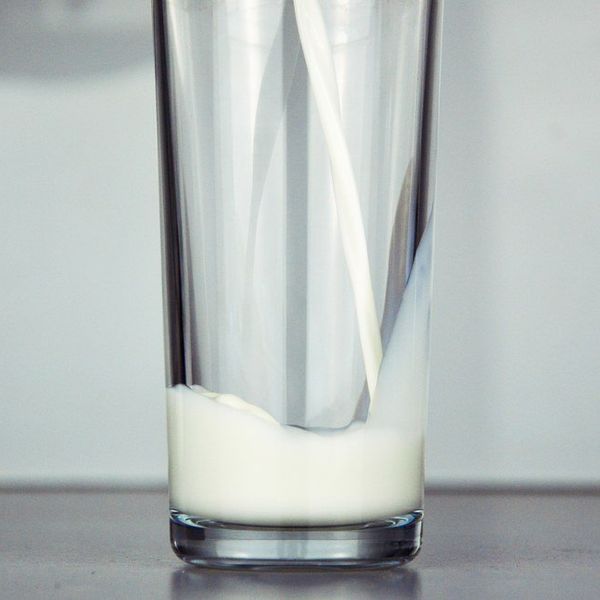You've seen the advertisements across the board highlighting milk as nature's recovery drink. For decades, the media has emphasized the "cup a day" rule, explaining that a cup of milk for breakfast will provide the body with essential nutrients for body functioning. Naturally, it wasn't questioned. We've been drinking milk from infancy. It allowed our body to develop into a well-oiled machine. However, in light of recent studies, one terrifying question has been raised.
Could milk be causing cancer?
Milk, specifically cow's milk, is chock-full of hormones that develop within the animal's body. When we consume milk, we are also consuming these hormones. Estrogen is a hormone that is specifically abundant in female cows and it transfers into their milk. Therefore, when we drink a glass of milk, we are taking in this estrogen. This throws off the body's internal balance, as estrogen is found in set amounts within the body. A hiked estrogen level causes internal regulation issues, especially within females.
Mood swings, insulin issues, and tumor production are also results of this lack of homeostasis within the body.These reactions occur due to the fact that the human body does not have the correct enzymes to metabolize these extra hormones. The 35 hormones and 11 growth factors found in milk are left to thrive within the body. All of this contributes to the highlighted tumor growth associated with cancer.
Where's the proof?
Dr. T. Colin Campbell PhD at Cornell University carefully studied the influence of animal protein on rats. He looked at casein, a component that makes up 87 percent of milk protein. He fed two groups of rats different diets and observed tumor growth. One group was fed > 10 percent casein and the other was fed > 20 percent plant protein. At the end of his experiment, it was found that the rats that consumed casein showed enhanced tumor growth while those who ate plant protein actually showed repression of tumor growth. Campbell concluded that the plant protein actually depressed the activity of the major enzymes responsible for cancer activation, while milk protein promoted growth. So based on this, milk is bad and plants are good, right?
There are numerous scientists that have repeated Campbell's experiment with similar results and even more cancer survivors that swear upon this plant protein based diet with the avoidance of milk. There are even studies that go past the casein in milk and cut out animal protein and meats altogether. These individuals report having fewer health issues than when consuming milk and animal products. These results are, of course, relative and every individual reacts to foods in different ways.
So what does this mean?
Don't worry, this does not mean that you have to go full vegetarian to avoid cancer. This just highlights the fact that we are in control of our own bodies. We are literally what we eat. Be aware of what you put into your body. Vegetables are always a good thing, and a little almond milk is actually not that bad. As Hippocrates said, "Let food be thy medicine." It can't hurt to put a little more color on your plate, and I'm sure your body will thank you.
More information on Dr. Campbell: http://nutritionstudies.org/





















